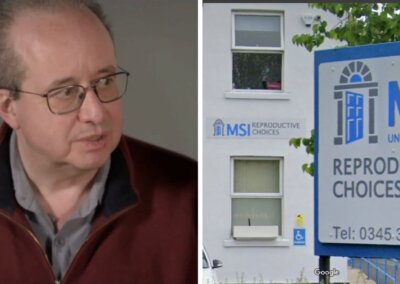Pro-life medical students who want to protect unborn babies from terminations could be forced to learn “abortion skills” under new proposals.
The Royal College of Obstetricians and Gynaecologists (RCOG) has released a report stating its intention to teach and assess “abortion skills” as part of its core curriculum but made no mention of any provision for conscientious objection.
In its Better for Women report, the College says “the General Medical Council (GMC) should review the Undergraduate medical curriculum to include the importance of abortion care to students.
“The RCOG will teach abortion skills as a part of its core curriculum and assess those skills through examination.”
All doctors who practise medicine in the UK must be registered with the GMC, meaning if the proposals are adopted, pro-life medical students could be forced to sit through undefined “abortion skills” training or risk losing their membership of the medical body.
In 2016, an inquiry by the All-Party Parliamentary Pro-Life Group found that UK doctors who do not wish to participate in abortion procedures are often refused the right to conscientious objection.
Fiona Bruce MP, who chairs the APPG, said: “This report reveals concerning evidence of doctors and other healthcare professionals being harassed, abused, and denied career choices, as a result of seeking to exercise their legal right to conscientiously object to being involved in the abortion process.”
Later that year, it emerged only 1% of trainee obstetricians and gynaecologists were taking higher training in abortion.
The document also outlines other extreme proposals:
- A commitment to continue working with partner organisations [likely abortion clinics such as BPAS and Marie Stopes International] to advocate for the decriminalisation of abortion up to 24 weeks across the UK (page 16).
- The rollout of ‘facetime abortions’ across the UK allowing abortion consultations to take place over the phone or Facetime/Skype, rather than face-to-face (page 149).
- The Government should “consider allowing” women to take the first powerful drug used to cause a non-surgical abortion at home, away from medical supervision and oversight. The second drug is already allowed to be taken at home (page 15).
- Governments throughout the UK “must legislate” to introduce buffer zones around abortion clinics – which will prevent pro-life help from being offered to those who need it most (page 16).
Right To Life UK spokesperson Catherine Robinson said:
“The Royal College of Obstetricians and Gynaecologists claims its proposals are ‘Better for women’ through its title, but the reality is the opposite.
“The RCOG’s report, with its misleading title, makes a number of troubling proposals that are worse, not just for women and unborn babies, but also for medical students.
“The extremely low number of trainee obstetricians and gynaecologists who were taking higher training in abortion likely reflects an innate human reluctance to destroy life. Such doctors should continue to have their rights to conscientiously object to abortions protected.
“Rather, this is another attempt to trivialise the ending of a life and to rush women and teenage girls through the abortion process, while providing less medical supervision and support for women.
“The RCOG should instead address the reasons women seek out abortion services in such high numbers in this country, often because of; vulnerability, isolation, lack of financial or emotional support, or pressure from a partner. Simply rushing women through the abortion process does nothing to address the problems these women already face and would only later compound these issues if coupled with post-abortion regret.
“The only people who would benefit from these changes are the UK’s two big abortion providers.
“This is a reckless approach to healthcare. Women’s safety and mental or physical health should never be potentially compromised for the sake of expediency or convenience.”












